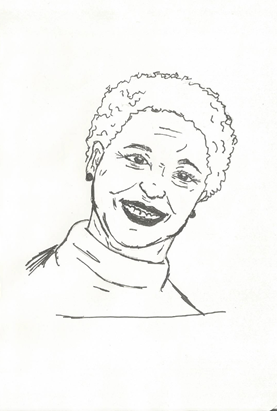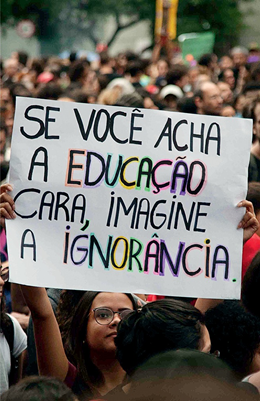by Jean Segata
Translated by Guilherme Souza Reviewed by Matheus Lucas Hebling
Originally published in Portuguese March 23, 2020 link
Outbreak, epidemic, and pandemic are terms of the technical universe of epidemiology for the temporal, geographical, and quantitative classification of an infectious disease. They are fundamental to management and control processes, defining levels of attention, and action protocols. In the case of Covid-19, for example, when a large number of people in the city of Wuhan, China, started to have a serious and unknown respiratory infection in a short time, the alarm for the beginning of an outbreak went off. The presence of a new variety of the Corona-type virus was quickly identified and, in a short time, similar cases also appeared in other cities and regions of the country and abroad. It was the beginning of the epidemic. Still, as the numbers of the disease continued to rise in more countries and continents, covering almost the entire globe, WHO decreed what is considered the worst-case scenario, the pandemic.
But, how can anthropology act in events described as a global scale? What is its importance in scenarios like this as well as of the other Social Sciences?
The first point to be considered is that of quality. Anthropology routinely trains its researchers with qualitative methods. Thus, numbers, cases, statistics, or prevalence have a face, trajectory, and biography in their research. They share experiences and create unique environments. So, the pandemic needs to be considered as an experience lived in the bodies and the collective sensibilities. Each experience counts; makes history. And we follow these stories and learn from them.
The second point is that it is necessary to keep in mind that global phenomena are always operated from local contexts. The global is realized from materialities and situated practices. As anthropologist Anna Tsing taught us in her book Friction, converting local data on a global scale is a perverse way of pretending universality. There is no doubt that China has a pioneering experience with Covid-19 and we have a lot to learn from the knowledge it has accumulated, including numbers and statistics. But the disease, its numbers, and life in China is a unique experience and cannot be used as a global parameter without criticism. I am thinking of some broad, but local, particular characteristics of certain populations, such as being a child, young or old, rich or poor, for example. I think about what is eaten, how much is smoked, how much exercise is practiced, how are the work routines, including their emerging precariousness. I also refer to environmental situations such as exposure to pollution and the local effects of climate change. Finally, I still think about fundamental rights, about universal access to information and health, as well as to safe sources of water and food, and levels of domestic and gender violence. Performing the universality of risk groups is in itself a risk that needs to be problematized. Anthropology in particular and social sciences, in general, have tools to help us with this. For instance, treating the elderly as a risk group needs to take into account what it is like to live (work, retire, have a project) and grow old in certain contexts. To say that children are less prone to Covid-19 [we] need to consider the still high levels of malnutrition experienced in different places around the world. Even the seemingly trivial life-saving “soap and water” formula needs to be analyzed. It is known that many economically vulnerable communities and victims of structured environmental racism do not have water on taps regularly and safely. Soap is a luxury item. Practicing isolation at home means having a home and having enough separate rooms for its residents. And, as anthropologist Debora Diniz has already warned, “home” is not always a safe place for quarantine, especially for women, in times of such a rate of domestic violence and feminicide.
The point is that the internationalization of science and health from the end of the 19th century until the bet on transnationalization through Global Health has accustomed us to the crossing of borders and scales. The promulgation of the universality of viruses, bacteria, and vectors and their effects has since allowed the colonization of local knowledge about health and disease. When a disease like Covid-19 spreads, it takes its science and techniques with it. It transposes local metrics, statistics, and actions, and this can cause countless mistakes. Numbers may be universal, but the phenomena and experiences they describe are not. Today, Covid-19 is a disease on a global scale, but that does not make it a universal phenomenon, and anthropology and social sciences are essential at this moment to think appropriately about its effects.

Jean Segata is a professor in the Graduate Program in Social Anthropology at UFRGS, where he coordinates the NEAAT – Center for Animal Studies, Environments and Technologies. Email: jeansegata@gmail.com | Twitter: @JeanSegata





